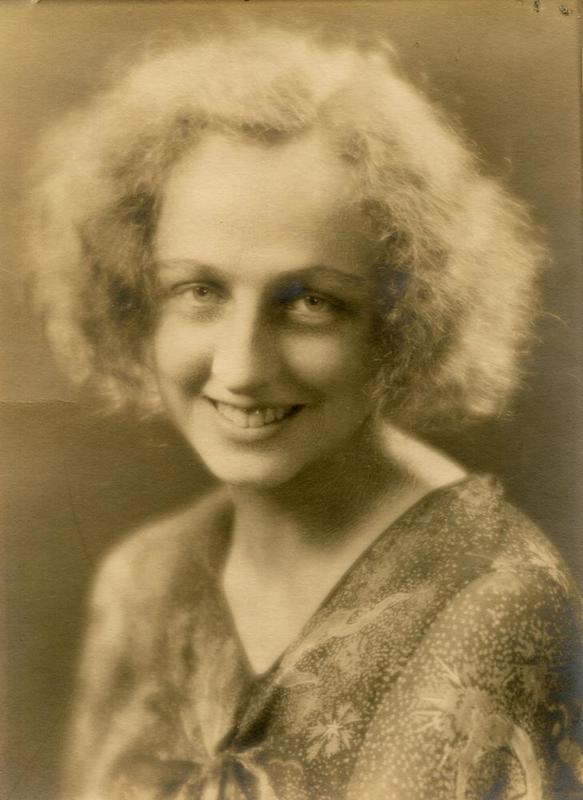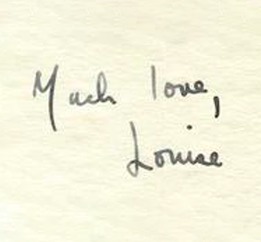Fascinating and Being Fascinated
If anyone recognizes Louise Bradley’s name today, it is probably due not to her own talent as a writer, but to her connection with Pulitzer Prize-winning poet Elizabeth Bishop. Bradley and Bishop became friends as teenagers at Camp Chequesset, and their delightful correspondence marks the beginning of Bishop’s long career as a great writer of letters as well as poetry. None of Bradley’s letters to Bishop survive, but the diary she kept from May 1930 to September 1933 was among the papers Bradley’s brother left to the Wylie House in 2004. This diary not only reveals insight into Bradley’s own talent as a writer; it also suggests that she hoped to become a famous writer herself. Indeed, even taking into account Bishop’s youthful modesty, as she was four years Bradley’s junior, Bishop’s letters to Bradley suggest that Bradley showed promise as a writer. In one letter, Bishop writes, “I’m nothing but a dreamer and a useless rebel - and you’re a poet” (Fall 1927). In another, she calls upon Bradley’s insight when she asks her to read one of her poems and “tell [her] all the bad points” (16 November 1926).
In an entry on July 25, 1930, Bradley wrote, “Will I be great? That will be the theme of this diary.” Unfortunately, Bradley’s work was never published, and she did not achieve literary fame, but her diary contains evidence of her “generative powers” (January 24, 1932). She read autobiographies by dancer Isadora Duncan, Grand Duchess of Russia Marie, mystery writer Mary Roberts Rinehart, and artist Marie Bashkirtseff, and she hoped, like them, to one day be famous and perhaps have her own diary published. Her favorite autobiography was The Journal of a Young Artist, by Bashkirtseff, a Ukrainian-French artist who died at age 25. On October 14, 1930, Bradley wrote, “This morning I have been reading Marie Bashkirtseff, for the thousandth time. I cried so hard that I made myself ill.” She seemed to want to model her own diary on Bashkirtseff’s and said that she “intend[ed] to be even more frank than Marie” (May 24, 1930). One of her writing professors, Edward H. Dewey, said that “he was sure [she] didn’t like Marie because [Marie] was so disagreeable,” but Bradley responded by boasting, “I am ten times as frank, therefore ten times as disagreeable” (August 20, 1930).
Unfortunately, Bradley burned the diaries she kept in high school and college, “thinking that [she] would improve so much that [she] could have nothing but contempt for [them]” (24 May 1930). She went on to say, “I have not improved, but it is well. . . . Even now the end is not clear, but I am glad that the beginning too is in a cloud.” Thankfully, she resolved that her 1930-1933 diary would “be saved entire” (14 October 1930). She wrote, “It is not a beautiful story, but it is true, and thence it gathers value” (14 October 1930). Two months later, she noted, “My diary is so unlike me. I am exuberantly gay — never happy unless I am fascinating and being fascinated. I talk by the hour about communism and the drama and education” (16 December 1930). Her diary may be a bit more serious than she expected, but it still portrays a witty, uncertain, flawed, and brilliant woman whose story is certainly worth telling.




